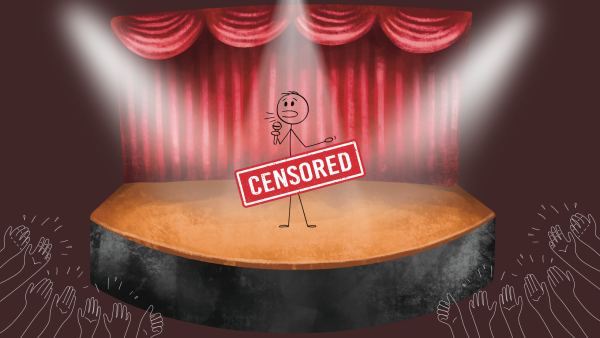Sincerely, Sumner: the PowerSchool problem
The first installment in a series of open-letters by Columns Editor Sumner Wallace.
Column’s editor Sumner Wallace discusses the stress grades place on students, and what they can do to alleviate it.
While confined in the windowless prison that is Northwest Junior High, I set goals for my high school career. Ms. Ellis, the health teacher, had asked us to make a goal card that presumably we would keep for the rest of our lives and look back on with fond smiles in our old age.
I promptly lost my card to the piles of semi-crumpled paper that sit in my basement marking my years of schooling, and I have little hope that I will ever find it. However, I remember distinctly one of my goals: get a 4.0 GPA every year of high school.
This goal is now ironic and sad for many reasons, one being that our GPA system has changed. Although a 4.0 is possible, it doesn’t carry the same connotation of perfection that it once did compared to a new, shiny and impossible 5.0. I realize this is the highest form of grade snobbery, but my persnickety brain can’t handle anything but zeros in the decimal.
Partially due to early onset senioritis and partially as a reaction to the stress and mental un-health of junior year I have made a promise to myself: I vow to stop checking PowerSchool.
At a school where “excellence is a tradition,” the pressure is always on to be outstanding in academics, athletics, and all other facets of school. Everything becomes a competition.
Although plenty of teachers tout a progressive “learning isn’t about grades” stance, the fact is that as long as grades exist and are held up as the ticket to our futures, this pressure will still exist.
— Sumner Wallace '20
Although plenty of teachers tout a progressive “learning isn’t about grades” stance, the fact is that as long as grades exist and are held up as the ticket to our futures, this pressure will still exist. There is a cultural problem surrounding how we assess and teach kids which can’t be solved by every sympathetic teacher. Grade based learning discourages creativity and instills a fear of failure that keeps students from taking risks academically, such as challenging themselves with difficult content that would warrant an ego shattering B-.
I wish that our academic progress was measured in individual improvement, but I know that this is unlikely to change any time soon. Grades exist to make tracking progress easier, less time consuming, and in some cases to act as an incentive. However, students can relieve some of the pressure themselves by adopting a healthier mindset.

Do you live in constant fear of PowerSchool notifications? It might be time to throw your phone out the window.
So to my fellow grade snobs, overachievers and anxious academics, chill out. I get it. Our parents, our schools and our brains can be frustrating, placing expectations (real or imagined) of perfection on us. While striving to be at the top is not a bad goal, it can be an unhealthy one. Yes grades are important, but they are not worth the lost sleep and tears that so often accompany them.
Going cold turkey on PowerSchool is unrealistic, I know. Teachers make mistakes and these would go uncaught if everyone threw their phones out the window, but if you obsessively check PowerSchool multiple times a day, I guarantee cutting back will do you some good. Try deleting the PowerSchool app, and only checking it on you computer. Turn off the “your grade went down 1%” notifications that only serve to give you more anxiety with little reason. Your sanity will be better for it.
Sincerely,
Sumner
Your donation will support the student journalists of West High School. Your contribution will allow us to purchase Scholarship Yearbooks, newsroom equipment and cover our annual website hosting costs.

Sumner Wallace is a senior and the columns editor. Although this is her first year on staff, she has been a guest writer and avid supporter of the WSS...

Emma Hall is a senior at West and this is her third year on staff as an artist for online staff. in her free time she likes to draw, read, and play video...

















